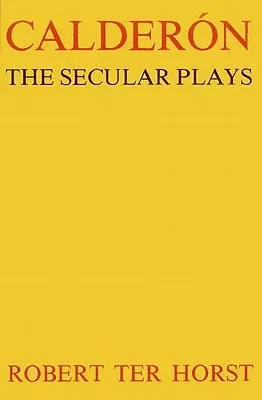Robert Ter Horst
(Author)Calderón: The Secular PlaysHardcover, 1 December 1982

Qty
1
Turbo
Ships in 2 - 3 days
In Stock
Free Delivery
Cash on Delivery
15 Days
Free Returns
Secure Checkout

Print Length
264 pages
Language
English
Publisher
University Press of Kentucky
Date Published
1 Dec 1982
ISBN-10
0813114403
ISBN-13
9780813114408
Description
Product Details
Author:
Book Format:
Hardcover
Country of Origin:
US
Date Published:
1 December 1982
Dimensions:
22.86 x
15.24 x
1.91 cm
Genre:
17th Century
ISBN-10:
0813114403
ISBN-13:
9780813114408
Language:
English
Location:
Lexington
Pages:
264
Publisher:
Weight:
557.92 gm